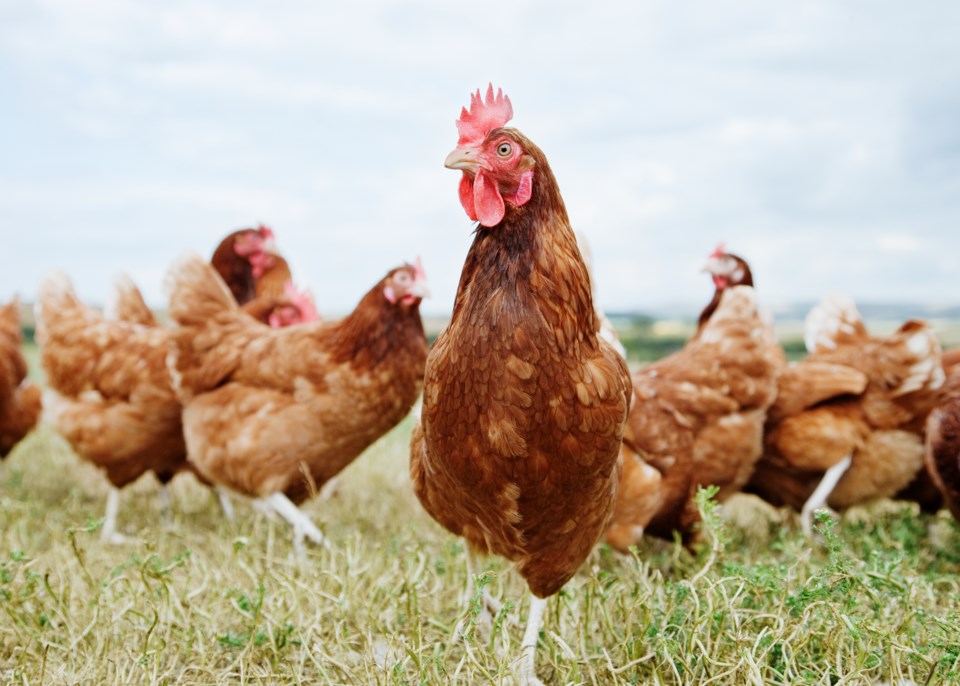The federal government says avian flu has now been detected in Kelowna.
The Canadian Food and Inspection Agency announced Monday evening highly pathogenic avian influenza was detected in a small backyard flock within the City of Kelowna.
“The infected premises has been placed under quarantine. CFIA has begun an investigation and will be establishing movement control measures on other farms within that area,” the agency said online.
Producers within a 12 kilometre radius of the test result have been informed, said the B.C. government in a separate news release.
This strain of avian flu was first detected at an Enderby farm, leading to a control zone being set up in the surrounding area, limiting the movement of livestock birds.
The H5N1 strain of avian flu is highly pathogenic and can cause serious disease and death in birds, says the CFIA. It poses low risk to humans, although people who are in close contact with sick birds can fall ill. It is very rare for the disease to spread between humans.
The CFIA said last week this has been an unprecedented year globally for avian flu. It said it believes migratory birds are responsible for the outbreaks, and expects there will be more cases as flocks continue to fly north for the summer.
Previous outbreaks in B.C. and elsewhere in Canada led to the destruction of millions of birds. The most serious was a 2004 outbreak in the Fraser Valley, where the H7N3 strain spread to 42 commercial farms and 11 backyard coops, prompting federal officials to order a cull of about 17 million birds.
Avian flu is spread through contact with an infected bird or its feces or nasal secretions. Farm birds that go outside are most at risk because they can come in direct contact with infected wild birds or their feces. Humans can also inadvertently carry the infection into a barn on their shoes or clothing.
When Agriculture Minister Lana Popham announced the discovery of avian flu in the North Okanagan farm earlier this month, she said the Canadian Food Inspection Agency was leading the response to the outbreak, which includes testing, mapping, surveillance and disposal of animals.
“All poultry producers, including backyard poultry owners, are advised to increase their biosecurity practices and to be vigilant and monitor for signs of avian influenza in their flocks," she said.
B.C.'s deputy chief veterinarian also issued an order requiring all commercial poultry flocks in the province with more than 100 birds to be moved indoors until the spring migration ends in May, the Agriculture Ministry said.
with files from The Canadian Press




